Navigating calls for democratic reform in Africa’s last remaining absolute monarchy
Over the past week, the Kingdom of eSwatini has been rocked by pro-democracy protests. What began as a public outcry following the death of university student Thabane Nkomonye in May, alleged to be a victim of police brutality, has since evolved into a wider call for democratic reforms. These include the transition from an absolute to constitutional monarchy, where citizens are able to elect a prime minister who holds executive power; the legalisation of political parties; an end to police brutality; improved service delivery; and job creation.
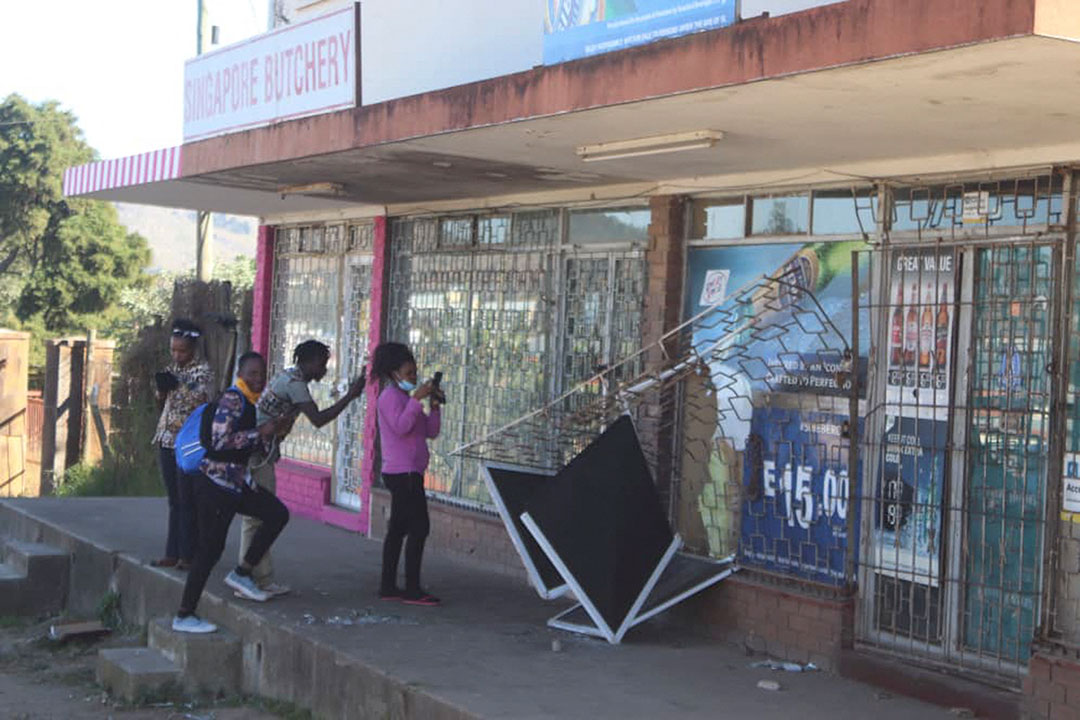
To quell the protests, which included instances of looting and burning of businesses, the government imposed a curfew, limited the internet, shut down the internet, and police and military were deployed to the streets. Escalating unrest has seen several deaths and dozens of injuries, allegedly at the hands of security forces.
Despite calls for dialogue by the ANC, SADC and others, the government has not yet reached out to key oppositional voices. Instead, it has taken the position that the unrest is the work of looters and a “foreign element” meant to destabilise the country. Only three members of eSwatini’s parliament publicly called for the prime minister to be elected rather than selected by the king. They are now in hiding in fear for their lives. The remaining parliamentarians either support the status quo or are too scared to voice their agreement with the proposal.
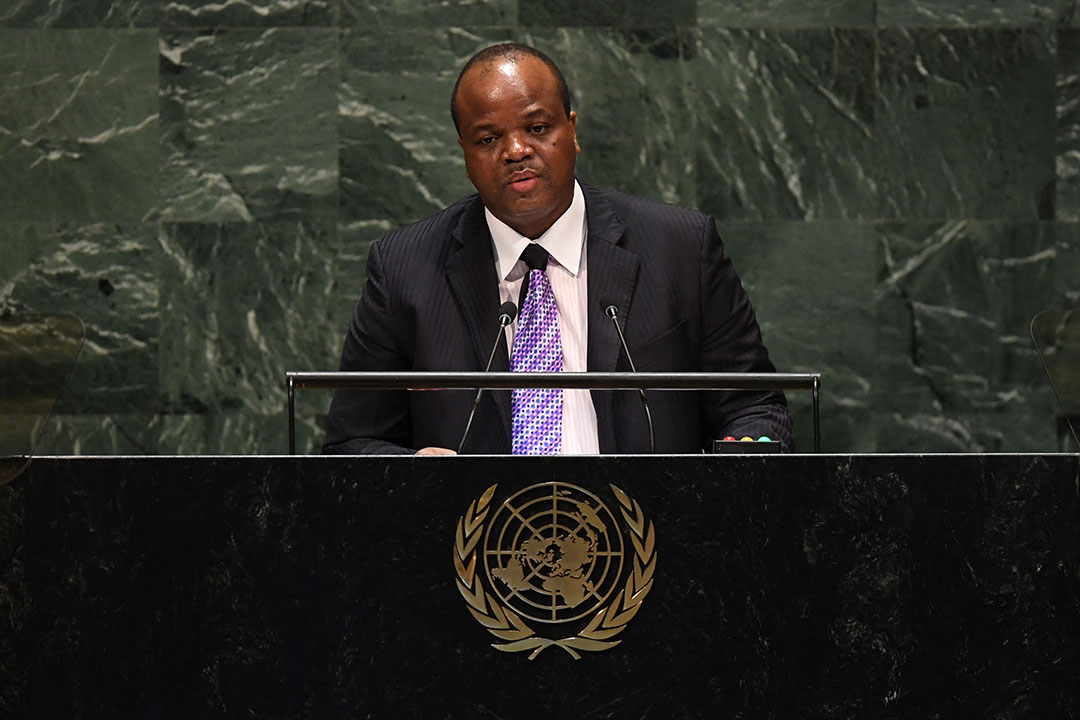
King Mswati III, Head of State, of eSwatini speaks during the 74th Session of the General Assembly at the United Nations headquarters in New York on September 25, 2019. (Photo by TIMOTHY A. CLARY / AFP)
On Sunday 5 July, the SADC Organ on Politics, Defence and Security Troika concluded preliminary engagements with government and civil society representatives as part of a fact-finding mission, with a second mission to shortly be dispatched to continue consultations with a wider group of stakeholders. The findings of these consultations will be finalised by the SADC Secretariat in conjunction with Organ Troika officials before being shared with eSwatini, which will then decide whether to act on the recommendations. SADC mediation interventions in the region, such as those in Zimbabwe between 2008 and 2013, and Lesotho in 2014, have not resulted in lasting positive political transformations. In addition, SADC may also become increasingly overstretched, considering the potentially costly and long-term deployment of a Standby Force to assist Mozambique to address violent extremism in Cabo Delgado.
While there has long been a perception that calls for a more progressive system of government have come from outside the country, internal efforts towards political change are not new. What is unprecedented about recent events, though, is both the scale of the protests (led not by unions or political organisations, but a large and clearly frustrated youth population), and the willingness of protestors to publicly speak out against the King. Their call for deep structural reforms would have been largely unthinkable even a decade ago.
The current standoff between progressive voices and those aligned with the country’s monarch raise a number of questions. Will King Mswati III be willing to accede calls for a transition towards a more participatory form of government or attempt to make cursory changes to appease protestors and regain political stability? What is the minimum amount of reform protestors would accept? And, if calls by opposition voices for a national dialogue mediated by a regional or international body are met, what kind of system do emaSwati want and how will this system balance the concerns of the royal establishment and local demands for democratic processes? Finally, is eSwatini’s invitation to SADC for a fact-finding mission to the country an attempt by the monarch to ease regional concerns and buy time, while simultaneously clamping down on internal political opposition?
Monarchical democracy or absolute monarch?
The Constitution of the Kingdom of eSwatini regards the country as a “democratic, participatory, tinkhundla-based system (system of local government) which emphasises devolution of state power from central government to tinkhundla areas and individual merit as a basis for election or appointment to public office.” The government cites this system as having the “dictates of true democracy” and King Mswati III has himself claimed the country is a “monarchical democracy…a marriage between the monarch and the ballot box”.
Through the tinkhundla system, one candidate is nominated on a non-partisan “individual merit” basis from each of the country’s 55 inkhundla (an administrative subdivision) to the house of assembly in the country’s bicameral parliament, while another 10 are appointed by the king. In the upper house of parliament, 20 members are appointed by the monarch to serve five-year terms and 10 elected from the house.
Historical context
In 1968, eSwatini gained independence from Britain and established a parliamentary multiparty system. Shortly after, in 1973, King Sobhuza II suspended the constitution, proclaiming it to be a source of division which did not reflect the “peaceful and constructive and essentially democratic” culture of the Swazi people, assumed all executive powers previously granted to the prime minister and cabinet, and banned all political parties.
Under King Mswati III, modest reforms have been made, including the drafting of a new national constitution in 2005. However, as argued by GGA’s executive director Chris Maroleng, the new constitution does not address the status of political parties (which are still outlawed today) and fails to answer the question which has bedevilled the nation since independence: “how to create a genuinely inclusive political system – one able to incorporate the demands of a modern state – with the vast power and privileges accruing to those who owe their position to a traditional system centred on the ruling Dlamini royal lineage.”
Today, eSwatini’s executive power is vested in the monarch who holds effective control over all branches of government, without the separation of powers usually seen within constitutional democracies. The king appoints the prime minister, the cabinet, judges, and serves as the Commander-in-Chief of the Defence Force, Police Service, and Correctional Services. The king is immune from all legal proceeding, has the power to revoke constitutional guarantees to freedom of expression, and can dissolve parliament at any time.
Based on the above, it is difficult to square the current political system with even the minimum requirements commonly used to define democracy, such as the division of powers between an executive, legislature, and judiciary, let alone more expansive definitions such as that contained within the African Charter on Human and Peoples’ Rights. Regardless, this might not matter if the status quo was viewed by emaSwati as responsive to their needs and helping to build them a prosperous future.
A sea change in public opinion?
Recent emaSwati public opinion data from Afrobarometer, highlighted by Sibusiso Nkomo and Josephine Appiah-Nyamekye Sanny, should alarm the government and clearly indicates that recent protests are far from the work of “looters” or “foreign elements” looking to destabilise the country.
Between 2018 and 2021, the number of citizens who described the country as a “full democracy” or “democracy with minor problems” fell from an already low 39 percent to just 27 percent. Trust in the king dropped a staggering 29 percentage points from 79 to 50 percent, while trust in local councillors dropped from 47 to 22 percent. Calls for parliamentary (74 %) and judicial (79%) oversight over the prime minister were high, while 58 percent of citizens believed elections were the best way of choosing leaders, and 59 percent believe the country needs numerous political parties.
Unrest has been driven by a youth population who, in the face of grinding poverty and high levels of unemployment, can view the extravagant lifestyle lived by the king and his sprawling family of 15 wives and 35 children on social media. Poverty levels are historically high and there has been little progress in reducing them. In 2017, almost 60 percent of the country’s 1.2 million residents lived below the national poverty line (down from around 68 percent in 2001), including 38 percent in extreme poverty. Poverty reduction has been hampered by high levels of youth unemployment (47.4 percent), HIV prevalence (27 percent), and low economic growth rates (real GDP growth since 2001 has averaged around 2.8 percent, about 2 percentage points lower than other Southern African Customs Union (SACU) member states).
Navigating change
Historically, when faced with protests by unions, journalists, or members of political organisations, the government has cracked down, seeking to halt progressive movements in their tracks. Otherwise, minor political concessions are granted to appease oppositional voices while fundamentally maintaining the status quo. However, if what recent protests and public opinion data suggests is indeed a groundswell of support for fundamental democratic reforms, these strategies may no longer work to quell the unrest.
Rather than decrease tensions, we have already seen how banning in-person delivery of petitions, public curfews, and deploying security forces can galvanise popular support against the state and raise the ire of international and regional actors.
However, King Mswati III is also likely to be well aware that ceding to public calls for multipartyism, or a publicly elected prime minister, may put him on a pathway that quickly leads to the end to his reign as one of the world’s last remaining absolute monarchs, and his ability to leverage this position to enrich his household.
Towards a solution or back to the future?
It is clear that a majority of emaSwati desire a more responsive and participatory political system able to ensure them a more prosperous future. It is imperative, however, that the form this system takes is decided by the country’s citizens and that the process is not captured by a narrow political elite or prescribed by outside actors. In this regard, the region provides ample examples of the pitfalls faced in attempts to transition towards a more democratic dispensation. Since 2014, Lesotho has seen recurrent military coups and associated political instability. In Zimbabwe, the adoption of a progressive new constitution in 2013 has done little to strengthen democracy and rule of law in the country.
Hopefully, the country can avoid these pitfalls and begin a process which blends the political, socio-economic and cultural practices of the emaSwati in a uniquely African way that may not quite fit within the standard mould of Western liberal democratic norms, but nevertheless provides a refreshing break with the malevolent and intolerant authoritarianism that has recently characterised Africa’s last absolute monarchy.
Failure to transform this kingdom to a more inclusive governance arrangement will undoubtably lead eSwatini back to an uncertain and unstable future.
Stephen Buchanan-Clarke is a security analyst with several years' experience working in both conflict and post-conflict settings in Africa, primarily on issues of peace and security; transitional justice and reconciliation; democratisation and governance; and preventing and countering violent extremism. He currently serves as head of the Human Security and Climate Change (HSCC) project at Good Governance Africa and is a co-editor of the Extremisms in Africa anthology series.



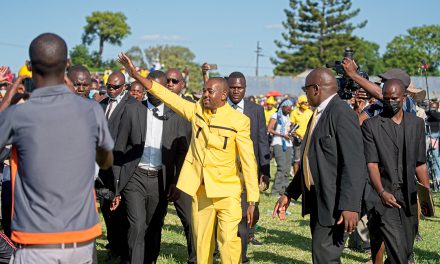
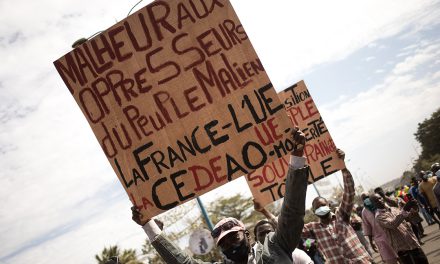
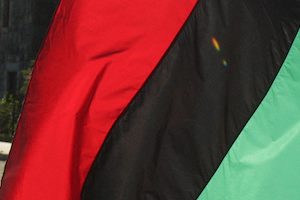
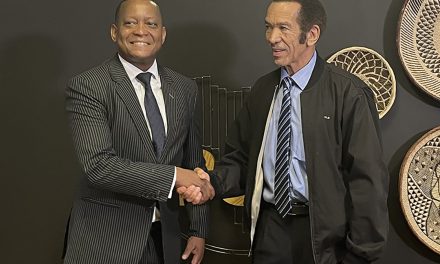


Good, balanced article. Informative.